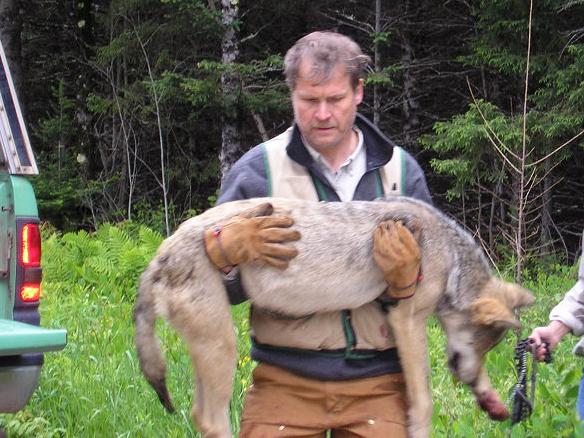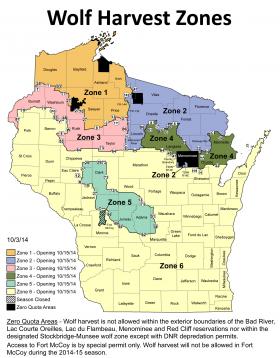Wisconsin Wolf Expert Weighs In On Hunt
In January 2012, the federal government lifted the gray wolf from endangered status. Practically in the same breath, state legislators passed a bill creating a wolf hunt and spelling out the use of dogs.
Wildlife biologist Adrian Wydeven headed Wisconsin's DNR wolf recovery efforts from 1990 until its delisting.
“One of my thoughts when I first accepted this position, I thought I was going to come up north and there would be a lot of people who really hated wolves and I’d be running into a lot of negative attitudes," Wydeven says. "I was surprised. I didn’t really run into all that many in 1990.”
Over time as the wolf population grew, Wydeven says he saw some attitudes shifting. There has been frustration over the wolf being listed and delisted. Other people are concerned about wolves killing dogs and the impact on deer hunting.
Concerns Over Dogs & Wolves
People hear about dogs being killed by wolves and then people become fearful about walking in the woods. Wydeven would like to dispel that fear.
He says wolves are most likely to attack “the hound hunting dogs in July or August when they’re training on bears, or September when they’re hunting bears. The dogs are often running some great distance from the hunters.”
When their pups are young, wolves are protective.
“And the dogs are occasionally encountering wolves in their summer rendezvous sites, and wolves are going to be very defensive of their pups from any predator that gets close," Wydeven says. "They’ll be aggressive toward bears, coyotes and strange wolf packs."
Concerns Over Deer & Wolves
"Although consumption of deer has increased as the wolf population has grown, wolves are not driving deer numbers down to dangerous levels," the biologist says. "The biggest factor that affects our deer herd are winters and the hunting [season] harvest.” Deer are harder to spot when wolves are nearby. "When wolves have established themselves, deer are going to be more elusive," he says. "They’re not coming out as readily during the daytime. They’re harder to see, so it gives the impression there’s a lot less deer.”
The 2014 harvest quote is 150 wolves.
Wydeven says he’s comfortable with the number, but “my preference would have been to have had some areas closed to harvest."
"We don’t need to have all of northern Wisconsin harvested; and it would be nice to have more areas closed – public lands, like in the national forests, where we don’t really need to have a harvest to reduce conflicts," he says.
The Department of Natural Resources is drafting a new wolf management plan. It will include the target population. Currently it is 350 - based on a 1999 DNR plan.
Wydeven believes the number should be higher, "the goal probably was appropriate back In the 1990's when we had less than 200 wolves in the state, but at this point when we have 600 or 700 in late winter, it’s probably not appropriate to drive it down that low."
He says it’s important to allow the wolf population to stabilize “so we know where we can plan to have wolves and where we’re going to have them under better control.”
He retired from the Wisconsin DNR earlier this month, but plans to remain involved in wolf monitoring.












No comments:
Post a Comment